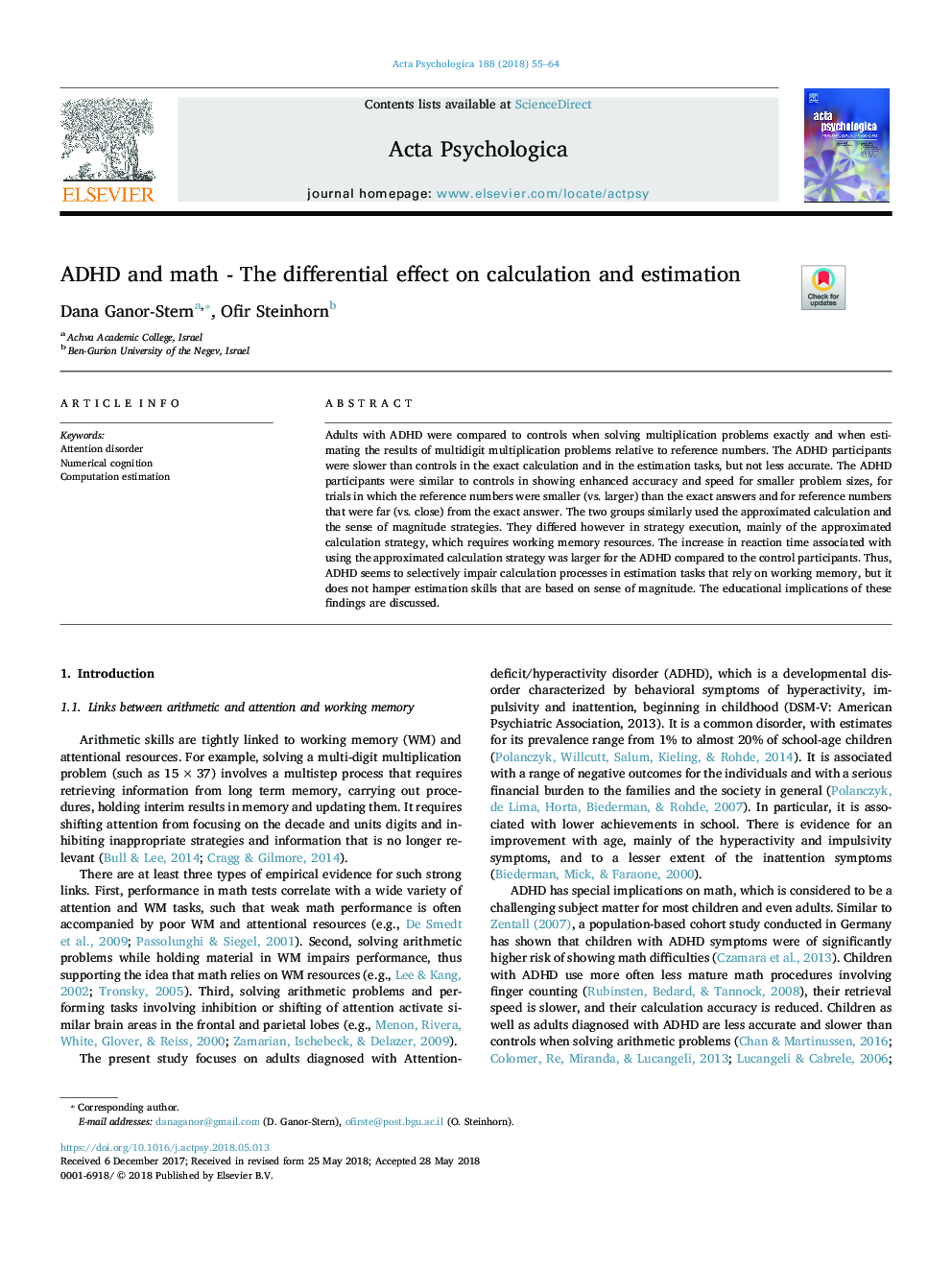| Article ID | Journal | Published Year | Pages | File Type |
|---|---|---|---|---|
| 7276572 | Acta Psychologica | 2018 | 10 Pages |
Abstract
Adults with ADHD were compared to controls when solving multiplication problems exactly and when estimating the results of multidigit multiplication problems relative to reference numbers. The ADHD participants were slower than controls in the exact calculation and in the estimation tasks, but not less accurate. The ADHD participants were similar to controls in showing enhanced accuracy and speed for smaller problem sizes, for trials in which the reference numbers were smaller (vs. larger) than the exact answers and for reference numbers that were far (vs. close) from the exact answer. The two groups similarly used the approximated calculation and the sense of magnitude strategies. They differed however in strategy execution, mainly of the approximated calculation strategy, which requires working memory resources. The increase in reaction time associated with using the approximated calculation strategy was larger for the ADHD compared to the control participants. Thus, ADHD seems to selectively impair calculation processes in estimation tasks that rely on working memory, but it does not hamper estimation skills that are based on sense of magnitude. The educational implications of these findings are discussed.
Keywords
Related Topics
Life Sciences
Neuroscience
Cognitive Neuroscience
Authors
Dana Ganor-Stern, Ofir Steinhorn,
